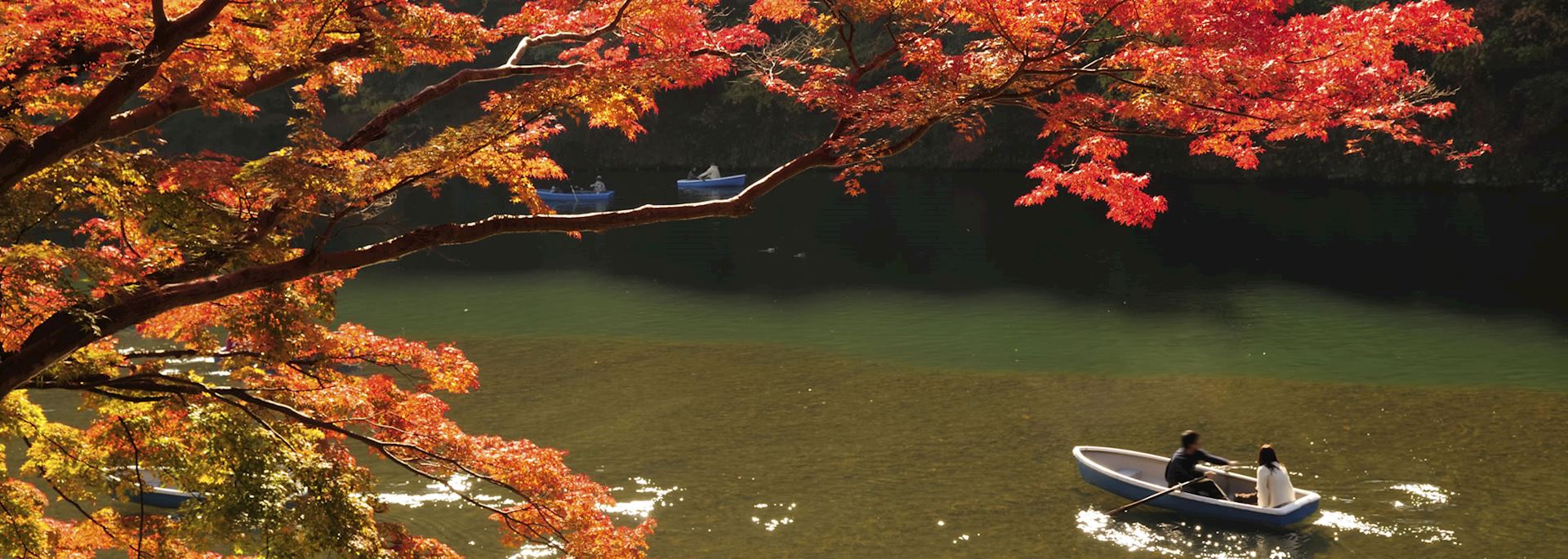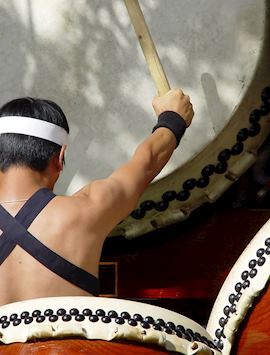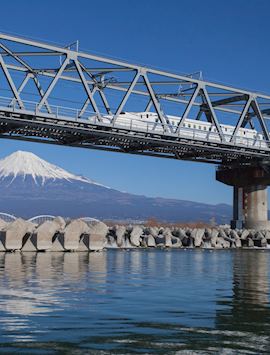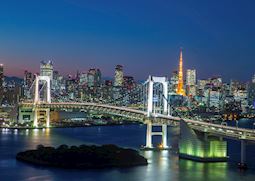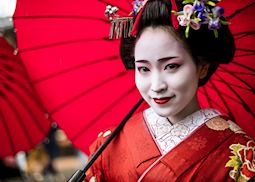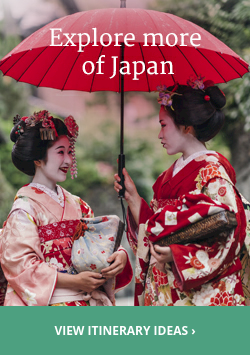The best time to visit Japan is during spring (March to May) and autumn (September to November). This is when Japan is at its most vibrant, with delicate cherry blossom or bright red leaves adding contrast to the scenery. Remember, it can also be very crowded at this time.
The summer months (June to August) offer ideal conditions for hikers and lovers of the outdoors, but only in the mountains of the Japanese Alps and Hokkaido鈥檚 wild national parks. Elsewhere, the weather is hot and humid. Rainy season occurs from the end of May until the middle of June or July.
For a very different experience, head to the north of Japan in winter (December to February). It鈥檚 snowy, but the people brighten the dark days with a variety of festivals and events.
It鈥檚 a good idea to take Japan鈥檚 national holidays into account, too. Shogatsu (Japanese New Year), Obon (in mid-August or mid-July, depending on the area), and the Golden Week (between April 29 and May 5) are busy times for residents.
Month-by-month guide for travelling in Japan
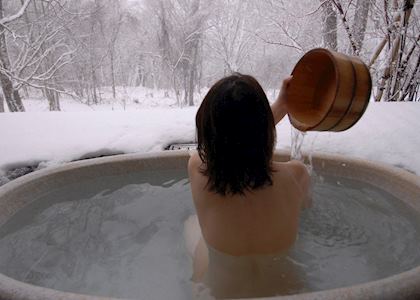
Visiting Japan in January
The weather is usually cool, dry and sunny during January and sites are much less crowded than later in the year. In northern Japan there is heavy snowfall making conditions good for skiing.
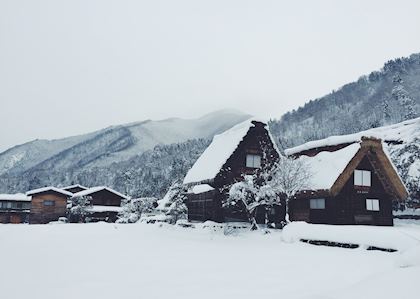
Visiting Japan in February
February is the peak of the ski season in northern Japan. Across the country days are generally cool, dry and sunny and many attractions are less busy than at other times of the year.
Events & Festivals
- For one week in early February, Sapporo is overrun with enormous ice and snow sculptures, built in the central Odori Park as part of the Sapporo Snow Festival.
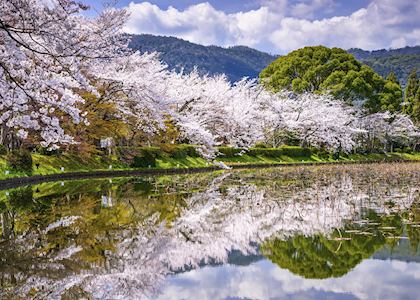
Visiting Japan in March
The weather starts to get milder in March and blossom on the plum trees marks the beginning of spring. Toward the end of March the cherry blossom begins to emerge in the south of the country, which is celebrated by the Japanese with picnics in local parks. As this season is a popular time to visit Japan, the country gets very busy toward the end of the month.
Events & Festivals
- The cherry blossom spreads north through mainland Japan.
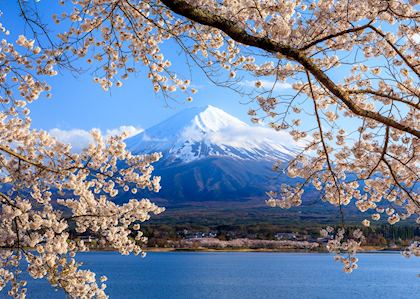
Visiting Japan in April
This is the peak viewing time for the cherry blossom as the trees start to bloom further north. The blossom during this time is beautiful and provides a magical experience, but if you travel during this time you have to expect everywhere to be very busy, and hotel rates escalate too.
Events & Festivals
- The cherry blossom spreads north through mainland Japan.
- Known as one of Japan鈥檚 top three most beautiful festivals, the Takayama Matsuri is held in the old town of Takayama where floats and shrines are paraded through the streets.
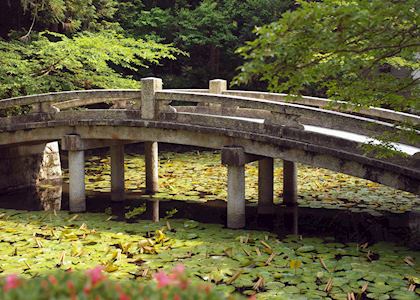
Visiting Japan in May
The weather in May is pleasantly warm and usually dry, and the vegetation is green and vibrant. Cherry blossom only reaches the northern parts of Hokkaido by this month, while in Okinawa, May is the rainy season. The first week of May is Golden Week, a national holiday and one of the busiest weeks of the year for domestic travellers.
Events & Festivals
- Asakusa in Tokyo is the centre for the Sanja Matsuri, held on the third full weekend in May. Colourful floats and shrines, accompanied by musicians and dancers in traditional Edo period costumes parade between Sensoji Temple and Asakusa Shrine.
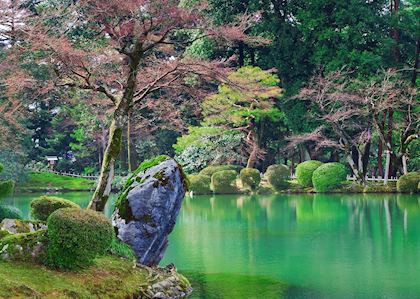
Visiting Japan in June
This time of year is hot and humid and there is typically rain in most parts of Japan. This means that the trees and plants are at their most vibrant, and Japan鈥檚 gardens are particularly beautiful.
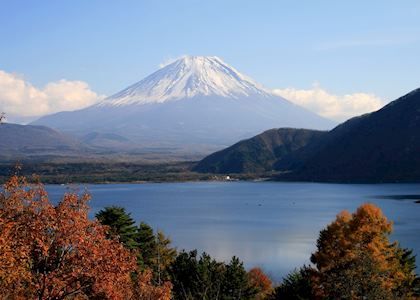
Visiting Japan in July
There are numerous festivals held all over Japan in July, making it a lively time to visit. The rainy season generally ends across most of Japan by the end of the first half of the month, but the humidity continues. July is also one of the best months to climb Mount Fuji, a hike which is only possible during the more favourable conditions of the warmer months. This is the peak season for domestic tourism and also sees the highest levels of rain and threat of high winds in Okinawa.
Events & Festivals
- Japan鈥檚 most famous festival, the Kyoto Matsuri, is held in Kyoto and dates back to the 9th century when it began as a religious ceremony to appease the gods. Enormous floats are marched through the streets throughout the month, although they are most impressive on July 17th.
- In the 7th lunar month, as part of the Obon Festival to honour the dead, the Awa Odori is held in Tokushima on Shikoku Island. Musicians and dancers flood the streets in vibrant costumes.
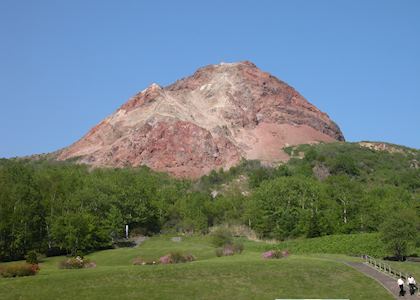
Visiting Japan in August
Festivals continue across Japan during August and this is a busy domestic travel period as it is the school holidays. The weather is generally hot and humid across the country, with Hokkaido being cooler and more comfortable.
Events & Festivals
- In the 7th lunar month, as part of the Obon Festival to honour the dead, the Awa Odori is held in Tokushima on Shikoku Island. Musicians and dancers flood the streets in vibrant costumes.
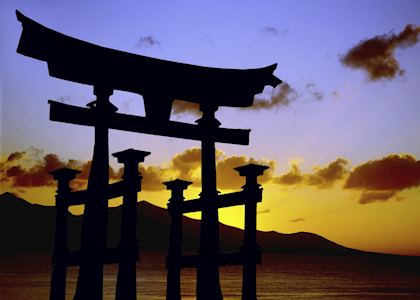
Visiting Japan in September
The domestic crowds associated with August have usually dissipated by September and skies are often clear and blue, although the weather can still be hot and humid. In late September the leaves start to change colour in Hokkaido, a process which makes its way south over the next few weeks. Toward the end of September there is a five-day national holiday known as Silver Week, during which prices increase dramatically as the Japanese travel about the country. Silver Week only occurs every few years.
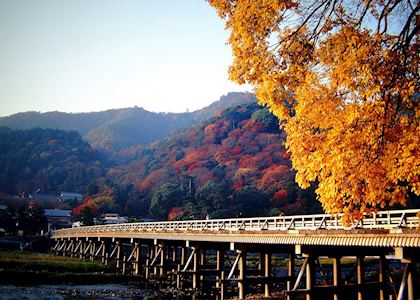
Visiting Japan in October
This is the start of the autumn season for mainland Japan and brings striking red and gold hues to the landscape. The weather begins to cool down from the heat of the summer, making October a pleasant time to visit.
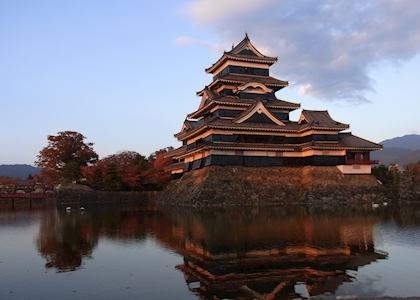
Visiting Japan in November
This is the peak time to see the colourful leaves in mainland Japan. Travelling around tends to be much quieter during this month, and the weather is pleasantly cool and mild.
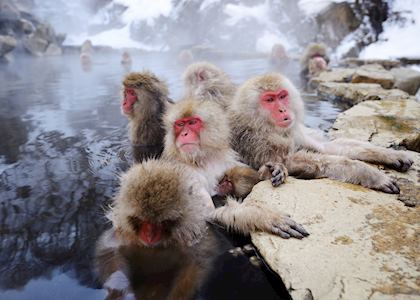
Visiting Japan in December
The weather is cool and typically dry in December, and the country isn’t busy for the first couple of weeks which makes it a good time to visit if you don’t mind the chilly temperatures. Ryokan properties don’t tend to have much in the way of heating so staying here can be cold. However, outdoor onsens can be really special experiences during the winter months, particularly in the north of Japan where you can be bathing in natural thermal hot springs yet surrounded by snow. Toward the end of December it gets busier as the school holidays start, and some attractions close in the run-up to the New Year.
Japan Climate Guide
| Destination | Jan | Feb | Mar | Apr | May | Jun | Jul | Aug | Sep | Oct | Nov | Dec |
|---|---|---|---|---|---|---|---|---|---|---|---|---|
| Hiroshima | 9°C 56mm | 10°C 68mm | 13°C 109mm | 18°C 158mm | 23°C 150mm | 26°C 252mm | 30°C 237mm | 32°C 116mm | 28°C 192mm | 23°C 105mm | 17°C 72mm | 12°C 48mm |
| Kanazawa | 6°C 292mm | 7°C 193mm | 11°C 159mm | 17°C 148mm | 22°C 149mm | 25°C 204mm | 29°C 246mm | 31°C 173mm | 27°C 249mm | 21°C 192mm | 15°C 235mm | 10°C 305mm |
| Kyoto | 8°C 76mm | 9°C 81mm | 12°C 118mm | 19°C 146mm | 24°C 159mm | 27°C 240mm | 31°C 242mm | 32°C 179mm | 28°C 208mm | 22°C 123mm | 16°C 86mm | 11°C 67mm |
| Miyajima Island | 7°C 66mm | 8°C 82mm | 12°C 122mm | 17°C 170mm | 21°C 169mm | 25°C 278mm | 29°C 259mm | 30°C 133mm | 26°C 211mm | 21°C 109mm | 16°C 75mm | 10°C 53mm |
| Okinawa | 19°C 109mm | 19°C 115mm | 21°C 142mm | 24°C 168mm | 26°C 245mm | 29°C 286mm | 31°C 192mm | 31°C 264mm | 30°C 170mm | 27°C 142mm | 24°C 132mm | 21°C 115mm |
| Osaka | 9°C 68mm | 9°C 73mm | 13°C 105mm | 19°C 132mm | 23°C 131mm | 27°C 197mm | 31°C 168mm | 32°C 110mm | 28°C 185mm | 22°C 127mm | 17°C 87mm | 12°C 66mm |
| Tokyo | 10°C 47mm | 10°C 62mm | 13°C 101mm | 19°C 122mm | 23°C 138mm | 25°C 184mm | 29°C 132mm | 31°C 147mm | 27°C 185mm | 21°C 174mm | 16°C 90mm | 12°C 50mm |
| Tsumago | 4°C 63mm | 6°C 74mm | 10°C 127mm | 16°C 163mm | 21°C 166mm | 24°C 268mm | 27°C 251mm | 29°C 214mm | 24°C 244mm | 18°C 149mm | 13°C 86mm | 7°C 63mm |
Why travel with Audley?
- 100% tailor-made tours
- Fully protected travel
- Established for over 25 years
- 98% of our clients would recommend us
Travel advice
Practical tips for travelling to Japan, from social protocols to guidance on money matters, with a link to the latest FCDO travel advice.

Request our brochure
Covering all seven continents, The World Your Way shows you how you can see the world with us. It features trip ideas from our specialists alongside hand-picked stays and experiences, and introduces our approach to creating meaningful travel experiences.
Trip ideas and travel guides for exploring Japan
-
![Taiko drummer]()
-
!['Shinkansen' bullet train and Mount Fuji]()
-
Value Japan: how to make your money go further ![Tokyo Bay, Japan]()
Value Japan: how to make your money go further
Value Japan: how to make your money go further
Read this guide -
What to do in Japan: our highlights guide ![Geisha of Japan]()
What to do in Japan: our highlights guide
What to do in Japan: our highlights guide
Read this guide
